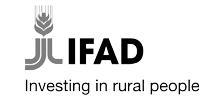# Smallholder Agribusiness Partnerships
SAPP commits to sustainable development goal number 01 & 02 – No poverty & zero hunger
APP helps to SDGs 1 and 2 by encouraging economies to participate in a more comprehensive, enlarged, and inclusive way, allowing rural people to get market access. The major goal of SAPP is to alleviate poverty among smallholder agribusiness communities in Sri Lanka.
SAPP invests in a value chain development process that gives farmers in rural areas new economic prospects. By providing access to the market, SAPP helps to alleviate poverty among rural farming communities. Farmers require technical assistance, as well as credit.
According to statistics published by the World Bank (WB) in its Spring Update on the South Asian area, Sri Lanka’s poverty rate would rise to 11.7 percent in 2022, up from 10% in 2019. Poverty rates are likely to rise due to import compression and investor concern caused by high debt levels. SAPP was able to identify rural community groups that are poor, as well as marginalized farming communities that lack access to market possibilities and financial resources.
We working with most needy people in Sri Lanka to eradicate poverty & hunger, For instance,
• Communities of backyard poultry farmers in Anuradhapura’s Rambewa area, who are struggling to make ends meet and lack basic infrastructure.
• The Turmeric farmers’ community faced 30 years of civil war in Ampara district.
• Due to the government’s unequal power contributions, as well as terrorist attacks and civil strife, dairy farmers in the Wawuniya and Kilinochchi regions lost market access.
• Climate change, global warming, and environmental challenges are affecting Kithul farmers in Rathnapura district.
• Mushroom women who operate their own operations at home, defying preconceptions and obtaining crucial market access, technology, and know-how
• Many traditional rice-growing villages are facing financial difficulties as a result of economic pressures and limited market access.
• Farmers who couldn’t afford to erect green houses and sell their produce at a good price.
We have a long track record of success. It demonstrates how SAPP helps to alleviate poverty in rural communities. Many farmers began banking, investing, and receiving direct profits from their products thanks to IFAD (International Fund for Agricultural Development) loans and grant facilities. It allows people to live more economically self-sufficient lives. Vulnerable rural women claimed to have their own green homes or mushroom farms under their roofs. It gives people authority in the system. It helps to alleviate poverty in the home and community. Similarly, SAPP helps to achieve SDGs 1 and 2 by reducing poverty and hunger in Sri Lanka’s rural communities.
We working with most needy people in Sri Lanka to eradicate poverty & hunger, For instance,
• Communities of backyard poultry farmers in Anuradhapura’s Rambewa area, who are struggling to make ends meet and lack basic infrastructure.
• The Turmeric farmers’ community faced 30 years of civil war in Ampara district.
• Due to the government’s unequal power contributions, as well as terrorist attacks and civil strife, dairy farmers in the Wawuniya and Kilinochchi regions lost market access.
• Climate change, global warming, and environmental challenges are affecting Kithul farmers in Rathnapura district.
• Mushroom women who operate their own operations at home, defying preconceptions and obtaining crucial market access, technology, and know-how
• Many traditional rice-growing villages are facing financial difficulties as a result of economic pressures and limited market access.
• Farmers who couldn’t afford to erect green houses and sell their produce at a good price.
We have a long track record of success. It demonstrates how SAPP helps to alleviate poverty in rural communities. Many farmers began banking, investing, and receiving direct profits from their products thanks to IFAD (International Fund for Agricultural Development) loans and grant facilities. It allows people to live more economically self-sufficient lives. Vulnerable rural women claimed to have their own green homes or mushroom farms under their roofs. It gives people authority in the system. It helps to alleviate poverty in the home and community. Similarly, SAPP helps to achieve SDGs 1 and 2 by reducing poverty and hunger in Sri Lanka’s rural communities.
SAPP Regional Offices
UVA Province
Mr.Chitrasena VidanagamageRegional Project Coordinator
Tel: 071 8116152
Email: [email protected]
Address: SAPP Regional Office, Agrarian Service Center district office,Keppitipola road Badulla
Southern & Western Province
Mr. Sajith Samarasinghe
Regional Project Coordinator
Tel: 077 375 08 81
Email : [email protected]
Address: Smallholder Agribusiness Partnership Programme, No. 212/A, Nawala Road, Rajagiriya.
Regional Project Coordinator
Tel: 077 375 08 81
Email : [email protected]
Address: Smallholder Agribusiness Partnership Programme, No. 212/A, Nawala Road, Rajagiriya.
North Western Province
Mr. R. M. Gunarathna
Regional Project Coordinator
Tel: 077 329 50 13
Email: [email protected]
Address: SAPP Regional Office, Provincial Department of Agriculture, Dambulla Road, Kurunegala.
Email: [email protected]
Address: SAPP Regional Office, Provincial Department of Agriculture, Dambulla Road, Kurunegala.
North Central Province
Mr. Thissa Pallekumbura
Regional Project Coordinator
Tel: 077 376 00 28
Email: [email protected]
Address: SAPP Regional Office,Provincial Department of Agriculture,2nd Floor, Kada 12, Anuradhapura
Tel: 077 376 00 28
Email: [email protected]
Address: SAPP Regional Office,Provincial Department of Agriculture,2nd Floor, Kada 12, Anuradhapura
Central & Sabaragamuwa Province
Mr. R. M. Gunarathna
Regional Project CoordinatorTel: 077 329 50 13
Address: SAPP Regional Office, Department of Animal Production & Health, No.13, Peradeniya.
Address: SAPP Regional Office, Department of Animal Production & Health, No.13, Peradeniya.


